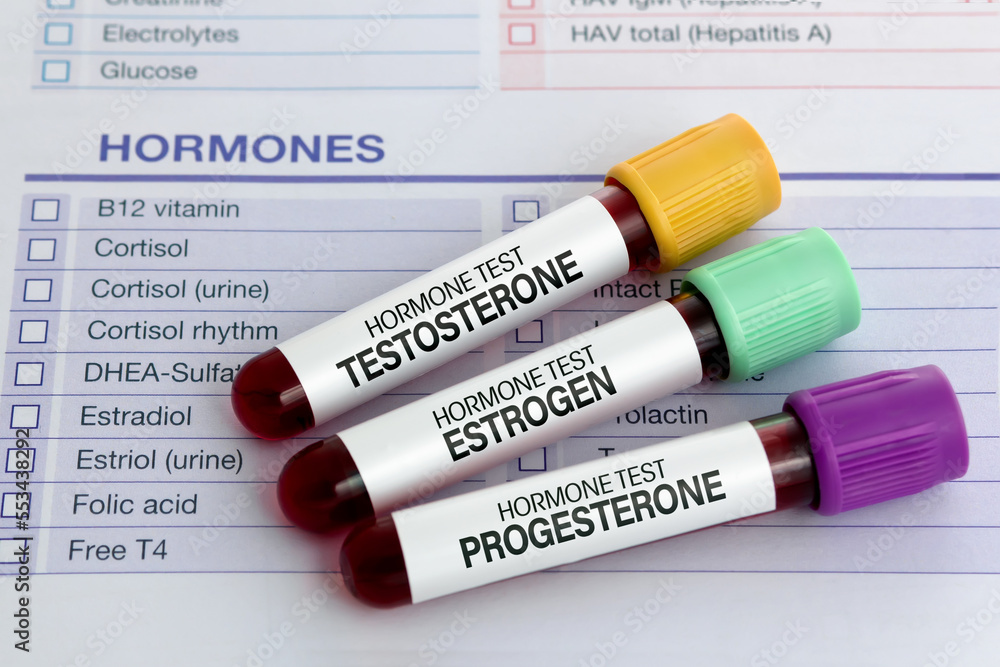Understanding Perimenopause and Menopause
Menopause is a natural biological process that marks the end of a woman’s menstrual cycle. It’s diagnosed after 12 months without a menstrual period and typically occurs in women in their 40s or 50s. Perimenopause refers to the time leading up to menopause, where women may begin to experience various symptoms due to changes in hormone levels.
Navigating the Symptoms of Perimenopause and Menopause
The experience of perimenopause and menopause varies significantly among women. Common symptoms include hot flashes, night sweats, mood swings, and changes in sexual interest or function. These symptoms can range from mild to severe and can significantly impact daily life and overall well-being.
However, it’s also not uncommon for some women to go through perimenopause and menopause with little to no discomfort. The lack of symptoms doesn’t lessen the importance of this life stage, but it does mean that each woman’s experience is unique.
What is Menopausal Hormone Therapy?
Menopausal Hormone Therapy (MHT), also known as Hormone Replacement Therapy (HRT), is a medical treatment designed to supplement the body with hormones, primarily estrogen, which naturally decrease during menopause. This treatment is essential for addressing various symptoms associated with menopause as outlined above.
Understanding Hormone Replacement Therapy
HRT is a customizable treatment, adjusted according to individual health requirements and the specific symptoms of menopause each woman experiences. The therapy can be administered in diverse forms, including oral tablets, skin patches, gels, and creams. Its primary objective is to provide effective relief from menopausal symptoms and to enhance the overall quality of life during this transition.
A Brief History of Hormone Replacement Therapy
Hormone Replacement Therapy (HRT) has been a significant subject in women’s health for decades. Its history is marked by evolving perceptions and scientific understanding, particularly concerning its safety and benefits.
The Women’s Health Initiative Study of 2002
A pivotal moment in the history of HRT was the publication of the Women’s Health Initiative (WHI) study in 2002. This extensive research initially suggested a link between HRT and an increased risk of breast cancer, heart disease, and stroke, leading to a dramatic decline in its use. However, subsequent analysis and ongoing research have clarified that the initial interpretation of the data was misleading.
Notably, the WHI study had certain limitations and the results were widely misinterpreted. A closer look at the findings reveals a more nuanced picture:
- Total cancers saw a decreased risk of 24%
- The risk of colon cancer was reduced by 37%
- There was a 35% decrease in the risk of diabetes
- Urinary tract infections (UTIs) were reduced by 60%
- The risk of osteoporosis dropped by 36%
Furthermore, a pooled analysis of 30 trials involving 26,708 participants showed a 40% decrease in mortality when estrogen was started before the age of 63, with no significant difference observed when started later.
The final analysis of the estrogen-only arm of the WHI revealed no increased risk of breast cancer or heart disease, countering the initial concerns raised by the study.

Problems with the WHI Study
The WHI study had several issues that impacted its findings and interpretation:
Selection Bias: All women with menopausal symptoms were excluded from the study. This does not represent the typical patient seeking treatment for menopause.
Study Duration: The study duration was less than five years, too short to assess the long-term effects of HRT.
Media Hype: The data was significantly distorted by media coverage, creating misconceptions about the risks associated with HRT. The actual data from the study did not support the claims made in many reports.
Type of Hormones Used: The WHI study used Medroxyprogesterone acetate, a synthetic form of progestin, rather than bioidentical progesterone. This is a critical distinction, as synthetic progestins have different effects compared to bioidentical hormones.
Understanding the Difference: CEE and Progestin vs. Bioidentical Hormones
It is crucial to distinguish between the types of hormones used in HRT. Conjugated equine estrogens (CEE) are derived from the urine of pregnant horses and are not identical to human hormones. Similarly, the progestins used in the WHI study were synthetic and differed from the progesterone produced in the human body.
In contrast, bioidentical hormone replacement therapy uses hormones that are chemically identical to those naturally produced by the human body. This distinction is significant, as bioidentical hormones are often considered to be more in harmony with the body’s natural processes, potentially offering a different safety and efficacy profile.
Exploring the Benefits of Hormone Replacement Therapy
Hormone Replacement Therapy (HRT) is more than just a solution for mitigating menopausal symptoms; it also offers potential benefits in the broader context of women’s health. The benefits of HRT extend to the prevention of various conditions, although it’s important to note that these are supported by literature, but not universally endorsed by all medical societies at present.
Prevention of Cardiovascular Disease, Osteoporosis, and Cognitive Decline
- Cardiovascular Disease: Studies indicate that HRT can play a role in the prevention of heart disease, particularly when started early in the postmenopausal period. Estrogen is believed to have a positive effect on the inner layer of artery walls, helping to keep blood vessels flexible. 1 2 3
- Osteoporosis: HRT is recognized for its effectiveness in preventing bone loss and reducing the risk of fractures in postmenopausal women. Estrogen plays a crucial role in maintaining bone density, and its supplementation through HRT can be a key factor in osteoporosis management. 4 5
- Cognitive Decline: There is emerging evidence suggesting that HRT might have a protective effect against cognitive decline and dementia, especially when initiated around the time of menopause. This area of research is evolving, with ongoing studies aimed at understanding the full extent of HRT’s impact on cognitive health. 6 7
Personalized HRT Options at NW Regen
At NW Regen, we understand that every woman’s experience with menopause is unique. That’s why we offer a range of HRT options, each tailored to fit the individual needs and health profiles of our patients:
- Topical Preparations: These include creams, gels, and patches, allowing hormones to be absorbed directly through the skin, offering an alternative for those who prefer to avoid oral medications.
- Oral Preparations: Traditional pills are a popular choice for HRT, with dosages carefully managed to meet each patient’s specific hormonal requirements.
- Injectables: These provide a direct method of hormone delivery with the potential for longer-lasting effects, suitable for those who prefer less frequent dosing schedules.
- Pellet Therapy: This involves the insertion of small hormone pellets under the skin, providing a steady hormone release over an extended period and reducing the need for daily or weekly dosing.
Dr. Moehle and the team at NW Regen are committed to working closely with each patient to determine the most suitable form of HRT. Our approach is holistic and patient-centered, considering not only the potential benefits but also individual lifestyles, preferences, and overall health goals. We believe in empowering our patients with information and options, helping them make informed decisions about their health and well-being. Reach out today and schedule your consultation.
NW Regen
We offer regenerative and interventional medicine – tailored to empower you with a more vibrant, active lifestyle.


